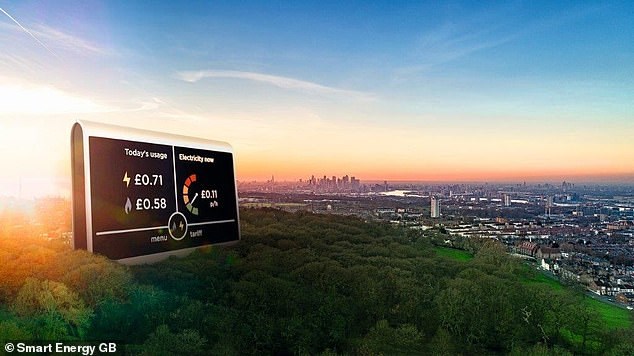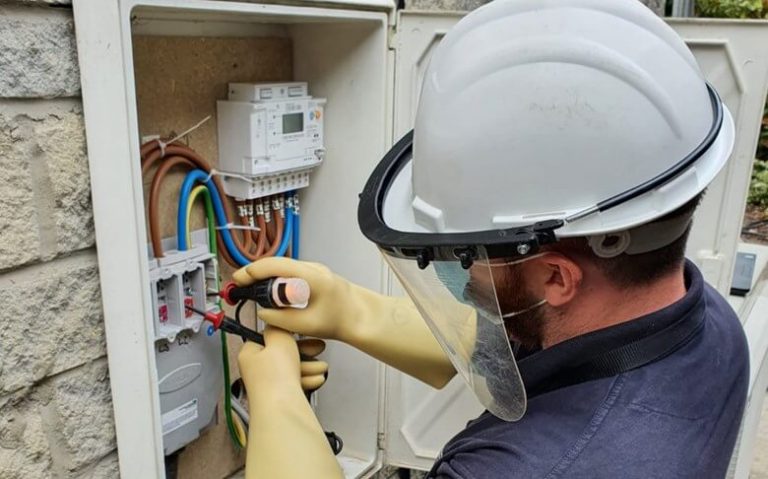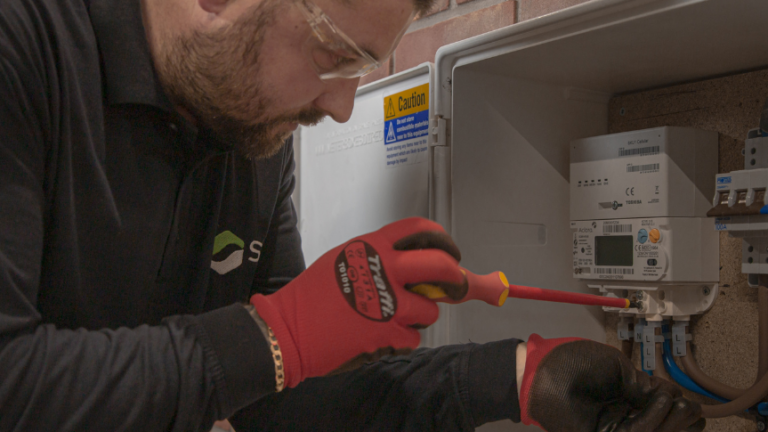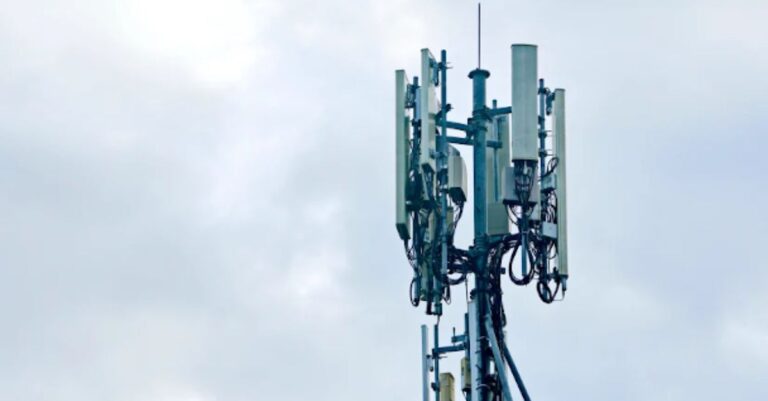What happens with smart meter data? Separating myth from reality

Smart Energy GB answers some of the most frequently asked questions about smart meter data, uncovering some surprising truths and debunking some myths along the way…
The role that data plays in all our everyday lives is changing, rapidly.
More and more, companies, governments and political parties are using mass data collected from lots of sources to spot trends and use the insights they discover to deliver services and messages tailored to each and every one of us.
It can sound scary and, as the Cambridge Analytica scandal demonstrated, this is an emerging field that authorities need to keep up with.
But the world is waking up to this; regulators and governments are now scrutinising the use of individuals’ big data much more closely in order to protect our individual rights to privacy.
The numerable uses of big data in our every day lives range from our use of ride-hailing apps and geo-location data, to our use of social media platforms, to how our supermarkets know which are the offers and coupons most likely to appeal to you.
It’s understandable then, that as millions of smart meters are installed in homes across the country, we might want to know how the information they collect will be used.
In a bid to clear up the confusion around smart meter data collection, we answer your questions.
Why do we need smart meters?
The government wants all UK homes to have a smart meter by 2024 as part of a move to make Britain a cleaner, greener place to live.
As a country, we have committed to going ‘net zero’ by 2050, meaning we need to cut our carbon emissions dramatically well before then.
To help drive this change, the government is upgrading the infrastructure that supports our energy consumption in this country.
Smart meters are at the heart of this shift: by monitoring how and when households use energy, our upgraded energy system will be able to accurately predict the energy we need, reducing wastage and cutting costs across the sector.
In addition, a modern connected system will allow us to take pressure of the grid ourselves by making it easier to shift our energy use to utilise more energy when supply from green sources, like wind, is high.
For example, smart meters could automatically alert smart switches connected to high energy use items like electric car chargers to turn on when energy is cheap, green and in lower demand.
This modern flexible system will mean that we waste less energy from the point of generation to the point of use – an estimated £650million – and can rely less on polluting carbon fuelled power stations.
What data is collected?
Smart meters record how much gas and electricity you use in your home, in much the same way as traditional analogue meters do.
This usage information is transmitted automatically back to your supplier, which uses it to calculate your bills – a much more accurate and lower-hassle way of ensuring that you don’t overpay for your energy, which many people still do.
It’s possible to set your meter to transmit usage readings as often as every half hour, but you can also set longer timeframes. If you don’t specify what your preference is, suppliers will take a reading remotely once a day.
Critically, your smart meter doesn’t store other personal information such as your name, address or bank account details. These are linked to the account held by your supplier and are subject to strict data protection laws.
Your supplier may ask you if you want to share your data with other parties and you have to give your explicit consent for them to do this.
For example, you may want to share your usage data with companies that can automatically check and keep you updated with the cheapest tariffs.
How safe is my data?
All data is protected by European data protection laws, which have become even stricter in the past few years.
The energy regulator Ofgem is responsible for making sure consumers are protected and as such, they monitor suppliers to make sure they’re obeying the rules set out in the Smart Metering Installation Code of Practice.
Ofgem is also responsible for the governance of the Smart Energy Code which the Data Communications Company, the energy suppliers and the network operators have signed up to.
The Data Communications Company provides the communications infrastructure that handles smart meter data. They make sure smart meters have the right information to generate your bill.
Energy suppliers are responsible for supplying and fitting smart meters. They need to abide by the rules and regulations set out in the Code of Practice, including making sure people know how smart meters work and how to control their data.
They also have to make sure that the smart meters they supply meet government standards.
Who sees my smart meter data?
Your personal data remains with your supplier and is protected. But aggregated and anonymised information about how and when energy usage occurs across the country is collected and analysed by government-appointed, highly regulated firms.
The insights this data provides will help our country, for the first time, to be able to accurately predict how much energy we need, where and when.
This will mean we can send energy where it’s needed, know when to store any surplus we have from renewable sources, and release it when it’s needed instead of relying on carbon powered stations to meet high demand.
Why does the government need smart meter data?
According to the Centre for Sustainable Energy a huge number of households in the UK only submit meter readings every six months. But energy is traded in the markets on a half-hourly basis.
The disparity between these time frames prevents energy suppliers from designing tariffs that accurately reflect how and when households use energy and as such, what they should be paying for it.
As more households move to smart meters and, particularly if they are prepared to submit automated readings every half hour, more suppliers could be in a position to offer dynamic pricing on energy.
In other words, suppliers could offer cheap prices when supply is high, which would encourage people to use more when supply is high – helping to balance out peaks in demand.
By collating domestic and commercial electricity usage data, smart meters allow a much more granular picture to build up which can also inform where storage facilities need to be built, reducing wasted energy from intermittent renewable sources.
Harnessing the power of smart meter data has the potential to help Britain save energy and save money – at home and as a country.
Smart Energy GB is a government-backed organisation tasked with informing Great Britain about the benefits of the smart meter rollout.
Learn more: smartenergygb.org


